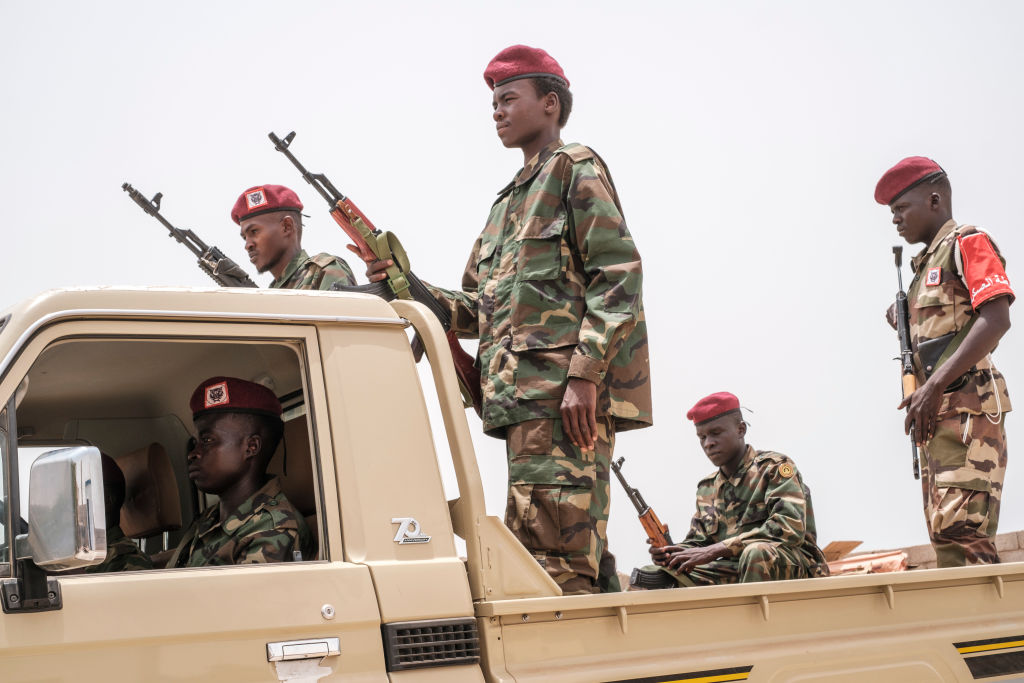ADF STAFF
Amid the chaos of Sudan’s ongoing conflict, the country’s eastern Kassala State has remained relatively peaceful. However, the growing presence of militias in the region threatens to change that.
Residents of Kassala and neighboring Gedaref states have reported convoys of military-style vehicles with mounted antiaircraft guns moving through in recent months. Sudanese militias have transited the region as they move from training camps in Eritrea and Ethiopia to fight the Rapid Support Forces (RSF) in support of the Sudanese Armed Forces (SAF) in Khartoum, Kordofan and other areas.
At the same time, militias that have been fighting the RSF in western Sudan have begun sending forces to the east.
“This complex situation has raised concerns that East Sudan eventually could come to resemble war-torn western Sudan, becoming a landscape riddled with armed groups,” analysts with the Sudan War Monitor wrote recently.
In Kassala, 27-year-old Mohamed Idris told Agence France-Presse (AFP) that he decided to join a militia training at a camp on the Eritrean border because he couldn’t find work.
“I got my university degree, but there aren’t any job opportunities. If I get into a training camp, I can at least defend my country and my people,” he said.
Experts note that the proliferation of militias serves the interest of the SAF, which began the war with an abundance of heavy weapons but a shortage of ground-based fighters. However, it also further complicates any attempt to find a peaceful, democratic resolution to the conflict as each militia will come to the table with its own territory, interests and demands.
“It is important to note that the armed militias in Sudan are diverse, with different motivations and dynamics,” researcher Osama Abu Bakr wrote for the Arab Reform Initiative in 2023. “The landscape is fluid, with new groups emerging and existing ones undergoing changes.”
In his report, Abu Bakr identified 16 militias operating in Sudan, closely divided between the eastern and western regions of the country.
Early in the current war, some militias, such as the Darfur-based Sudan Liberation Movement (SLM) and Justice and Equality Movement (JEM) remained neutral and focused on protecting their communities against attacks by both sides in the conflict.
Eventually, both groups threw their support to the SAF and began fighting the RSF. They are among the western militias that have recently expanded into the eastern states to support the SAF.
Those western militias are joining a growing number of eastern militias in Kassala, such as the Eritrean-backed Eastern Cohort and the Sudan-based National Movement for Justice and Development (NMJD).
Leaders of eastern Sudan’s Beja community have denounced the deployment of Eastern Cohort fighters and pledged to confront them as a foreign force active in Sudan.
Meanwhile, a Kassala youth group known as the Free Sons of Kassala Forum opposes the continued growth of militias and armed civilians in eastern Sudan. They have warned that the expanding ranks of militias and the abundance of weapons undermine Kassala’s security. Kassala’s stability has helped it serve as a haven for many people displaced by fighting in Sudan as well as people fleeing Eritrea and Ethiopia.
By encouraging the growth of militias to support the SAF, Sudan’s leaders are compounding the country’s chaos, warns analyst Ameer Babiker. The SAF and RSF struggle with command and control issues as they rely more and more on militias to do their fighting, according to observers.
By empowering militias, Sudan’s generals are making it impossible to ignore their demands when the fighting finally ends, according to Babiker.
A peaceful Sudan will depend on successfully integrating its many militias into the national military, Babiker says.
“This requires extensive dialogue and out-of-the-box thinking to arrive at an optimal formula for integrating these militias in a way that reinforces the state rather than undermining it,” Babiker wrote recently for Moatinoon. “This would mark an end to one era and the beginning of a new one.”

